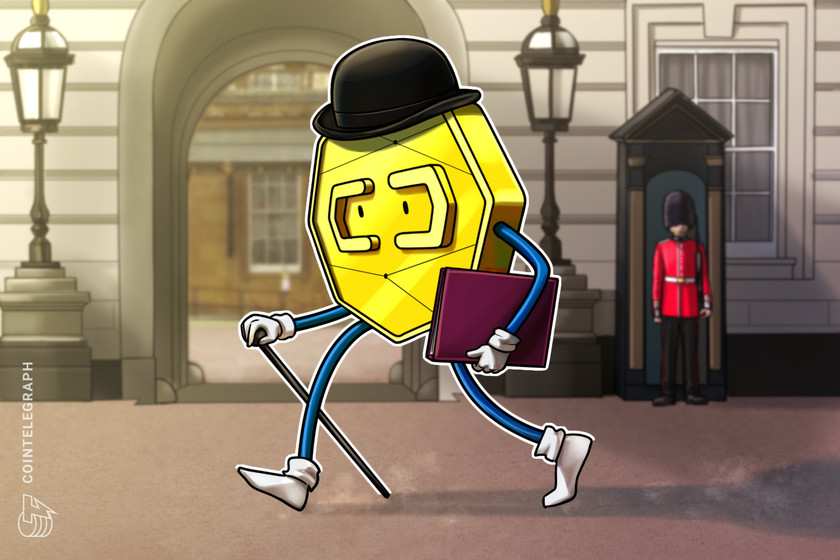
The lawmaker said the regulation will need to be both “pragmatic” and “proportionate” to ensure economic growth is maximized.
The United Kingdom could lay out digital asset regulation within 12 months a British lawmaker claimed, saying the country wants to capitalize on the benefits that blockchain can bring to the private sector and economy.
In an April 17 CNBC interview, Andrew Griffith, the economic secretary to the U.K. Treasury said the long-term vision is to “let firms make the most of the opportunities from crypto assets” with sound crypto regulation.
For the first time in “decades,” Griffith claimed the U.K. government is now well-positioned to regulate crypto in a “pragmatic” and “proportionate” manner and appeared to make reference to the U.K.’s exit from the European Union:
“I think over the next 12 or so months is the window. We've got this great asset in the U.K., we've got control back of a rule book — not something the U.K. has had for decades — so we've got the ability to move in an agile and proportionate way.”
It led the lawmaker to assert that the U.K. is now in a “growth” mindset to maximize the economic efforts brought by tech innovation in the private sector.
Griffith explained the crypto regulatory framework would mix existing financial asset laws with new crypto-specific rules.
“Wherever possible we want to see the same asset regulated in the same way, but there are some additional opportunities in the crypto asset or distributed ledger space and we want to take advantage of that.”
He cited settlement using fiat-backed cryptocurrencies as an example which was included in the financial services bill. “So that's coming even sooner than the broader regulatory framework,” he added.
Related: Digital pound could co-exist with private stablecoins — UK central bank
Griffith said a potential rollout of the U.K.’s proposed central bank digital currency (CBDC) — nicknamed “Britcoin” by the public — has a much longer “lead time” and therefore won’t be seen within the next year.
Griffith added he wants to see a policy debate regarding privacy and the technology of the digital pound “thrashed out” to ensure that all concerns are addressed:
“If you're going to have a sovereign digital currency you've got to have the highest level of resilience and infrastructure, so that's not going to happen overnight.”
Brian Armstrong, the chief of crypto exchange Coinbase, met with Griffith earlier this week while he was in London to give a speech on how the U.K. could “turbocharge” its crypto sector and ultimately become an "innovation hub for the Web3 economy.”
Great meeting today with UK Economic Secretary and City Minister @griffitha.
— Brian Armstrong (@brian_armstrong) April 17, 2023
The UK is moving fast on sensible crypto regulation to both drive economic growth AND consumer protection. Excited to keep investing in the UK. pic.twitter.com/478PQSLmDe
Coinbase's crypto hub aspirations for Britain are in line with the views of prime minister Rishi Sunak who explained last year while serving as finance minister that he would like to see the U.K. become a crypto hub.
Dubai, Singapore and recently Hong Kong are some regions that have made pushes to become crypto hubs.
The United States, on the other hand, has considerably stepped up crypto-related enforcement action since Gary Gensler was sworn in as chair of the Securities Exchange Commission in April 2021.
Magazine: Crypto regulation: Does SEC Chair Gary Gensler have the final say? – Cointelegraph Magazine





